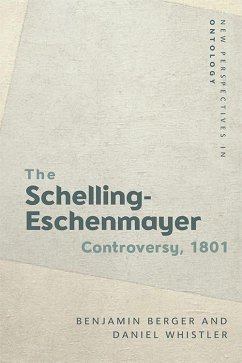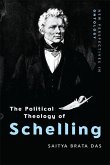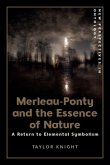A study of the genesis of Schelling's philosophy of nature and absolute idealism, highlighting the importance of A. C. A. Eschenmayer During the first decade of the nineteenth century, F. W. J. Schelling was involved in three distinct controversies with one of his most perceptive and provocative critics, A. C. A. Eschenmayer. The first of these controversies took place in 1801 and focused on the philosophy of nature. Berger and Whistler provide a ground-breaking account of this moment in the history of philosophy. They argue that key Schellingian concepts, such as identity, potency and abstraction, were first forged in his early debate with Eschenmayer. Through a series of translations and commentaries, they show that the 1801 controversy is an essential resource for understanding Schelling's thought, the philosophy of nature and the origins of absolute idealism. Additionally, Berger and Whistler demonstrate how the Schelling-Eschenmayer controversy raises important issues for the philosophy of nature today, including questions about the relation between identity and difference and the possibility of explaining sensible qualities in terms of quantity. This ultimately leads to the formulation of the most basic methodological question for the philosophy of nature: must this philosophy be based upon a prior consideration of consciousness - as Eschenmayer insists - or might it simply begin with nature itself? By arguing for the latter position, Schelling challenges us to entertain the possibility that the philosophy of nature is first philosophy. Benjamin Berger is Visiting Assistant Professor of Philosophy at Haverford College. Daniel Whistler is Reader in Modern European Philosophy at Royal Holloway, University of London.
Hinweis: Dieser Artikel kann nur an eine deutsche Lieferadresse ausgeliefert werden.
Hinweis: Dieser Artikel kann nur an eine deutsche Lieferadresse ausgeliefert werden.








